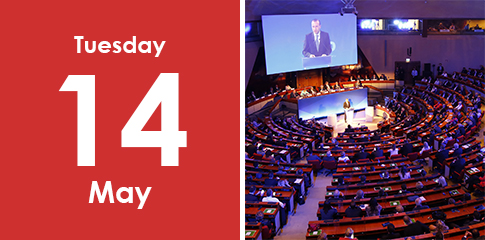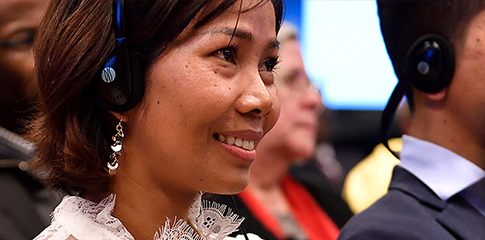Over the course of its history, humanity has experienced several episodes of mass mortality due to infectious diseases. All of them have threatened social organisation and have made people believe it was the end of the world, irrespective of the magnitude of the public opinion that evaluated these episodes. With regard to COVID-19, of course there are more deaths from seasonal influenza or hunger each year than from this pandemic. However, its contagiousness, the speed at which the virus has spread across the globe and how it has overwhelmed existing health systems, has stirred up the deep fear of death that prevails in today’s collective worldview.
Infection control measures, which have revealed new forms of bio- and necropolitics, have changed the production, distribution, consumption and capital accumulation chains, in all sectors. This has threatened contemporary society, based on a financialised, cognitive, patriarchal and extractivist capitalism, which continues to promote overconsumption and competition between individuals, in business and between countries as the driving force behind progress.
An upheaval on this scale leads to a crossroads where people do not know which path to take. It is possible that in a few weeks or months things will have gone back to “normal”, strengthened by the business opportunities revealed by the lockdown. Or else, the hard blow may have opened paths to transformation and it will go in another direction. As the Spanish philosopher Paul B. Preciado suggested, we must learn from the virus1: if the virus mutated in an effective way to improve its replication, we should learn to mutate to live as humanity.
The pandemic’s revelations
Despite the United States Government’s attempts –in its dispute over world dominance– to accuse China of having produced the “new coronavirus”, or SARS-CoV-2, in its laboratories, it became increasingly clear that the virus had mutated and spread from animals to humans, as occurred in most of the zoonotic pandemics in the 20th and 21st centuries2.
In the so-called “wet markets” in southern China cities, we find the ideal conditions for wild animals, domestic animals and humans to come together, allowing for the mutations required for the virus to spread among humans. In particular, the genetic proximity of the new coronavirus to the one originating in bats and pangolins in the region around Wuhan, appears to be the most likely source.
The infectivity and simultaneous occurrence of serious cases overwhelmed healthcare systems, first in China and then in all other countries around the world. The systems did not respond because there are fewer and fewer “systems”, and more “lucrative specialised service corporations”. Since the 1960s, an enormous “medical and industrial complex” has developed, now financialised, which integrates large research and innovation emporia, hospital services management, biomedical technology, drugs, the training of increasingly specialised professionals and, above all, financial intermediation through insurance and the stock exchange4. The neoliberal agenda of privatising reforms has been functional in the accumulation of capital in the so-called “medial and industrial and financial health complex”, the central core of financialised and cognitive capitalism5.
In Latin America, the healthcare system is the best example of the universal health coverage promoted by the World Bank and the World Health Organization, because most of the population has some kind of health insurance, and insurance is the best mechanism for protecting people from the financial risk of paying for expensive medical care. It is a compulsory social security system, but one based on an insurance market, with regulated competition and subsidy on demand for poor people. This institutional arrangement is being exceeded by the pandemic, because it waits for the ill people, who are considered clients, not patients; is does not prevent or understand infections and it has produced and reproduced all kinds of inequalities, in particular between towns and rural areas, between towns, between ethnic groups and between men and women. Nevertheless, the governments insist on pouring resources into the system through financial intermediaries, so as to order each authority to play its role, whilst it guarantees the profitability of the financiers who receive huge sums of money granted by the State.
Mutating in which direction?
There is an urgent need to mutate, but in which direction? If the origin of zoonotic pandemics is in the form of the relationship between humans and animals, or between society and nature, it is necessary to overcome the logic of exploiting nature for human benefit, and to mutate towards a respectful relationship, which cares for all life forms, based on vital consumption, internal markets, short cycles, with more exchange and less rentier accumulation of capital.
There is an urgent need to transform our understanding of the dynamics of the pandemic, as well as the institutional and social response. The awareness of human interdependence, and the interdependence between humans and nature, leads to a new way of understanding the country we live in. Public resources should reach families and communities directly, without any financial intermediation.
A universal basic income system for the majority of the population, made up of poor people and informal workers, with public services included and an organised home care model, supported by social and community participation, would make it possible to pave the way for the transformation of the model for intermediation, concession and hiring that prevails in all sectors of the economy and social protection. Mutate to live: not to survive, but instead to “live well”, collectively and jointly, looking after human and non-human life.
Darío I. Restrepo
Faculty of Economic Sciences, National University of Colombia
indamail@gmail.com
Marío E. Hernández
Faculty of Medicine, National University of Colombia
mariohernandez62@gmail.com
1 Preciado PB. (2020). Aprendiendo del virus. En: Agamben G, ŽiŽek S, Nancy JL et al. Sopa de Wuhan: Pensamiento contemporáneo en tiempos de pandemias. Sc: Editorial ASPO (Aislamiento Social Preventivo y Obligatorio), 163-185.
2 Chunăg. (2020). Contagio social: Guerra de clases microbiológica en China. Rosario: Lazo Negro.
3 Arrighi G. (2007). Adam Smith en Pekín: Orígenes y fundamentos del siglo XXI. Madrid: Akal.
4 Burlage R and Anderson M. (2018). The Transformation of the Medical-Industrial Complex: Financialization, the Corporate Sector, and Monopoly Capital. In: Waitzkin H. (Ed.), Health Care Under the Knife. Moving Beyond Capitalism for Our Health (pages 69-82). New York: Monthly Review Press.
5 Waitzkin H. and Working Group on Health Beyond Capitalism. (2018). Health Care Under the Knife. Moving Beyond Capitalism for Our Health. New York: Monthly Review Press.
6 Lamprea E. (2011). La constitución de 1991 y la crisis de la salud. Bogotá: Universidad de los Andes.
7 Quintero D. (22 September 2019). Corrupción electoral: las últimas denuncias de Ariel Ávila. Fundación Pares. Retrieved from: https://pares.com.co/2019/09/22/tres-casos-de-corrupcion-denunciados-por-ariel-avila/
This article is a translation of the original version in Spanish









Depuis des décennie nous n’avons pas respecté les engagements pris lord des conférences sur la santé public, la santé primaire et l’environnement – Rappelons les engagement de Djakarta sur la promotion de la Santé au XXI eme sièce : Les conditions préalables à l’instauration de la santé sont la paix, un logement, l’éducation, la sécurité sociale, les relations sociales, l’alimentation, un revenu, la responsabilisation de femmes, un écosystème stable, une utilisation durable des ressources, la justice sociale, le respect des droits de l’homme, et l’équité. Par dessus tout, la pauvreté reste la plus grave menace pour la santé »